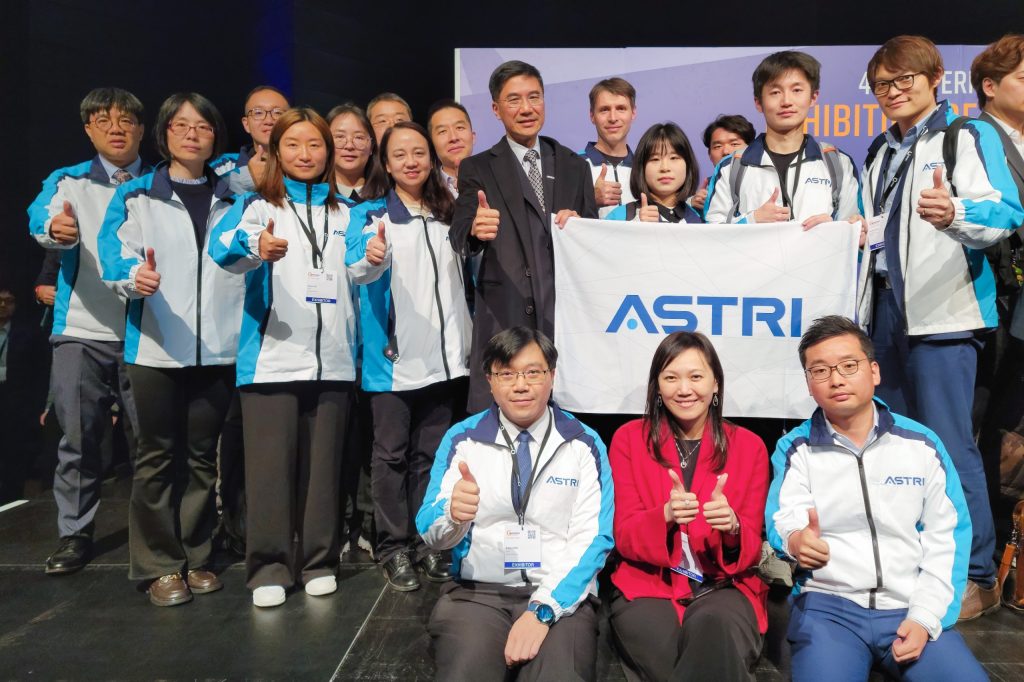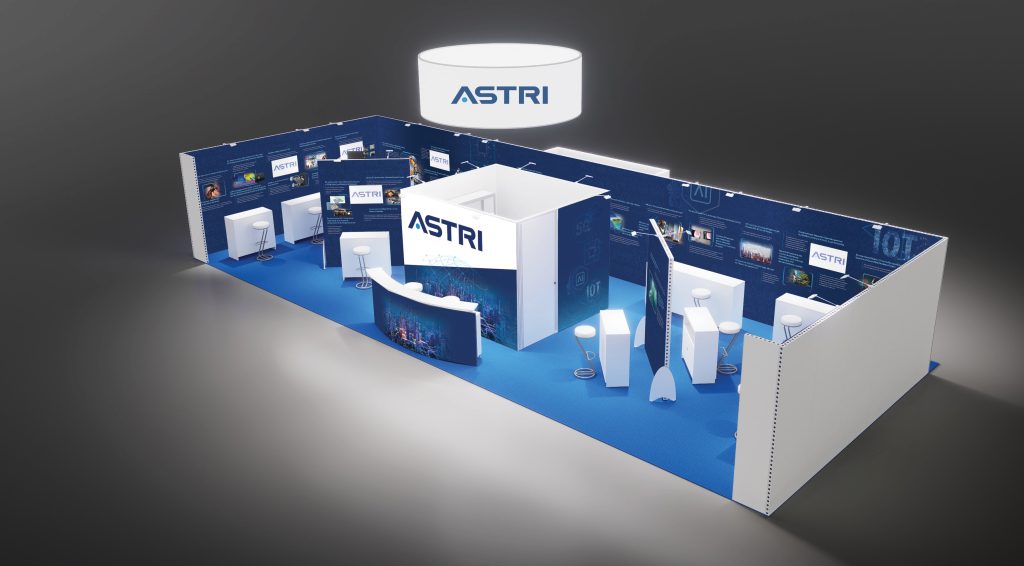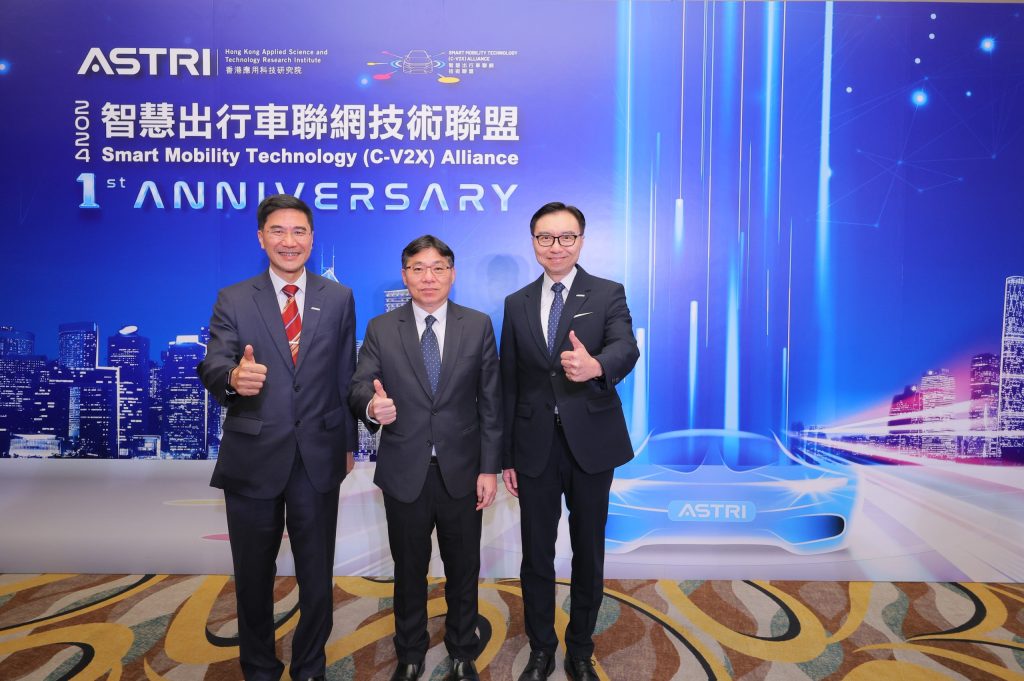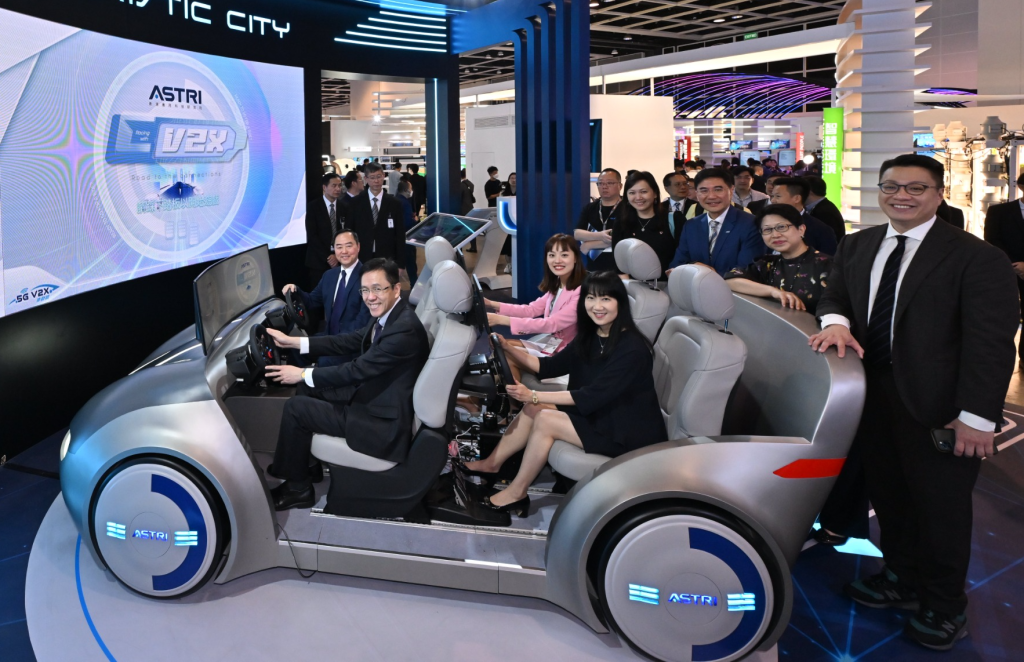[Hong Kong, 6 December 2020] The Hong Kong Applied Science and Technology Research Institute (ASTRI) has won a Silver Award for Smart Living for its iGem Guard Raman spectrometer, and a Bronze Award for Smart Mobility with its gantry free Electronic Road Pricing (ERP) from the Hong Kong Information and Communications Technology Awards (ICT Awards) 2020.
Dr Lucas Hui, ASTRI’s Chief Technology Officer, was very pleased with the outstanding achievement of the winning teams. “Our technology can be applied extensively to improve quality and efficiency of enterprises while benefiting the lives of our citizens. One of the significant benefits is about enhancing the quality of products which helps strengthen consumer confidence and trust which is a key factor that sets Hong Kong apart and builds its reputation. We are deeply honoured to receive the awards and I would like to thank our R&D professionals for their endeavours and perseverance to make this significant breakthrough. They certainly are living up to ASTRI’s mission and values.”
The cost-efficient and portable iGem Guard can distinguish the category, authenticity and rank of more than 3,000 different kinds of gems in just three seconds.
Dr Chun Zhang, ASTRI’s Director of Sensing Devices and Integration, IoT and Sensors, who led the research, said: “We will continue to strive for innovative ways to expand the application of the Raman spectrometer for other purposes, such as food and health product safety, installing it on mobile devices for public usage, testing the quality of surgical masks, hand sanitisers, herbal medicines and cosmetics, or detecting any substance change in water sources.”
Applying state-of-the-art mini three-band laser spectroscopy technology, the iGem Guard is equipped with adaptive and accurate sensors and intelligent algorithms. Through the process of one-touch optical inspection, the device can swiftly determine whether a diamond is natural or synthetic; whether a jadeite is classified as “Grade A” or chemically-processed (“Grade B” or “Grade C”); whether a pearl is formed in freshwater or saltwater.
ASTRI has taken advantage of its expertise to select suitable and fine optical components, developing a spectrometer that would fit in the palms of two hands, which is about 20 times smaller than conventional ones. The relevant patented mini-spectrometer technology was awarded a Gold Medal with Congratulations of the Jury at last year’s International Exhibition of Inventions of Geneva.
The team used a variety of jewellery samples from the industry to build a database consisting of a great variety of gems and minerals. Each device costs between HK$100,000 and HK$200,000. Provided that only a single type of jewellery is tested, the price can be further reduced to HK$50,000. Meanwhile, it can store spectral information, photos and descriptions of jewellery in a classified manner to facilitate inventory management.
The judging panel praised the iGem Guard for bringing promising influence to the local jewellery industry. The roadmap in tailoring the devices in mini and micro sizes could further benefit a larger group of users, assisting small-scaled jewellery shops and individual jewellery collectors for identification and management purposes.
The award-winning ultra-wide broadband (UWB) + vehicle-to-everything (V2X) ERP System did not require setting of the enormous gantries to detect vehicles passing by to initiate charges during rush hours, with an aim to tackling traffic congestion in central business area through diversion.
Dr Billy Chan, ASTRI’s Deputy Director of cellular vehicle-to-everything (C-V2X) and coordinator of this project, said “It is our honour to receive the support and affirmation of the panel, providing lots of professional and valuable opinions. Our system has also been recognised by the industry, which helps pave the way for ASTRI and its industry partners, Hong Kong Telecommunications and Genvict, to further develop smart mobility and the C-V2X technology.” ASTRI has successfully tested this system with its partners. Trial runs have been conducted in several cities in the Greater Bay Area. ASTRI will explore with stakeholders on the feasibility of implementing this system in Hong Kong.
ASTRI is a market pioneer in combining C-V2X and UWB technology to enable the precise estimation of position. ASTRI uses existing roadside infrastructure, thereby eliminating the need to build expensive gantries and laying of optical fibres as well as reducing the number of sensors required, with a view to effectively reducing the time and cost in adopting the ERP system. In addition to this, the system is easy to install and transfer, and can be adjusted when necessary.
The advantageous nature of V2X and UWB allow the system to perform real-time and reliable smart transport management to accurately locate the vehicles with low battery consumption, which can also ensure data security and protect user privacy.
The judging panel praised the UWB+V2X roadside system in achieving breakthrough in ERP, providing a cost-effective, brand new and flexible solution for areas with long-term traffic congestion problem. The system can facilitate in-city traffic management with a view to enhancing the mobility of Hong Kong.
Established in 2006, The Hong Kong ICT Awards aims at recognising and promoting outstanding Information and Communications Technology (ICT) inventions and applications.
ASTRI Sensing Devices and Integration team members involved in the development of the iGem Guard include: Ms Chow Yeung-ming; Ms Cheung Hoi-ching; Ms Wu Meng-ting; Ms Cheung Siu-lai; Dr Wong Ka-chun; and Mr Woo Ka-ki.
Team members involved in the devise of the ERP system include: Mr Mui Kai-ho, Mr Hou Xiao-jia ; Dr Cheung Yin-ping; Ms Xia Hua; Ms Lee Yik-tung; Mr Wong Long-hei; Mr Chai Yu-liang; Mr Su Dong-zhe; Mr Chen Hang; and Mr Zhou Zi-gan.
ENDS
Captions:
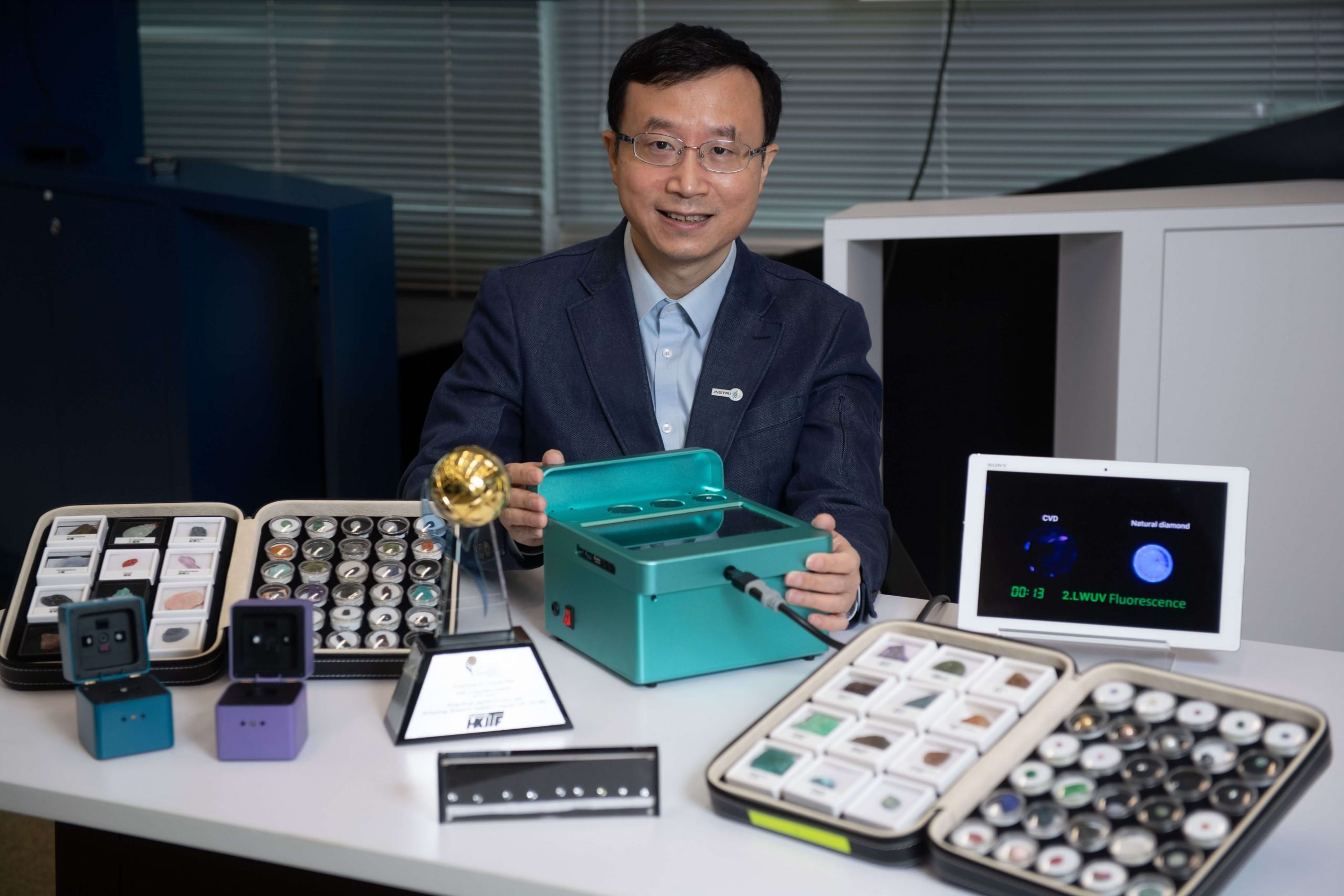
001: Dr Chun Zhang’s team develops a device to distinguish gems in three seconds.
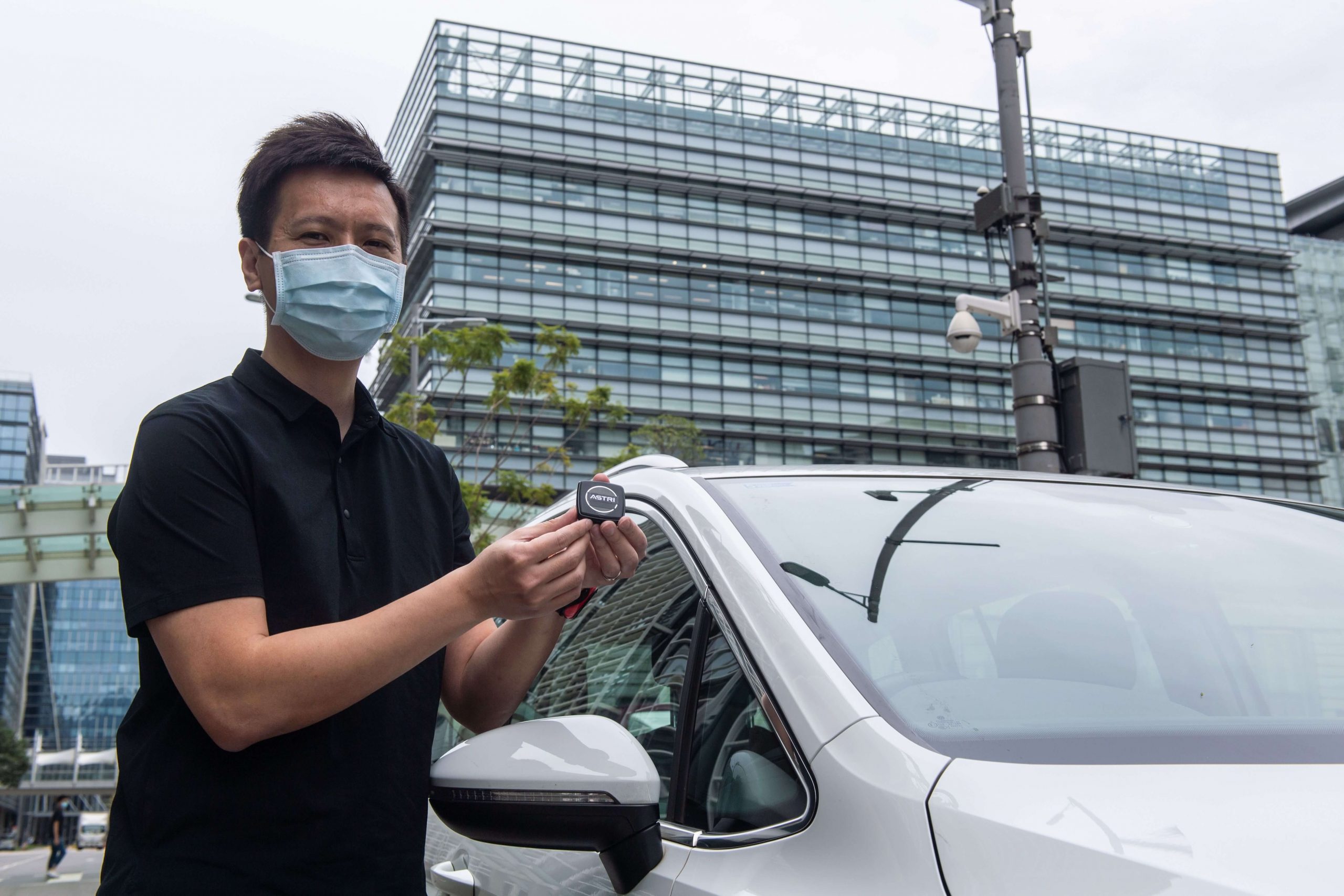
002: ASTRI’s gantry-free Electronic Road Pricing System operates by sensors on roadside facilities such as the white device on the lamppost in the background and the device being held by Dr Billy Chan which is installed in vehicles.
Related News
